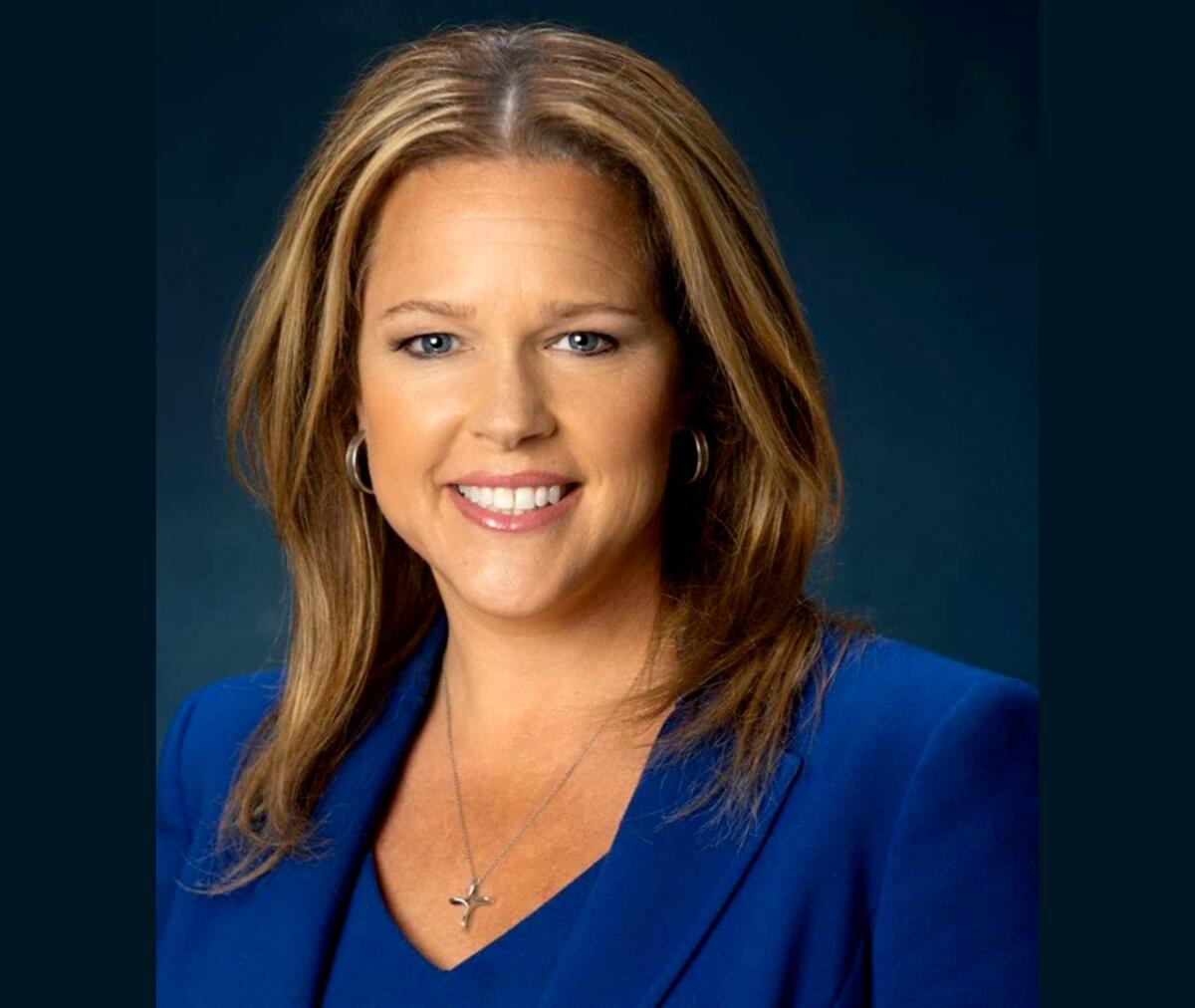Column: When an anti-vaxxer dies of COVID, is that cause for glib, ironic satisfaction?

- Share via
Kelly Ernby was no doubt a good person, a friend to her friends, a companion to her husband, a crime-fighting prosecutor. She presumably had all the decent qualities we usually celebrate after a person dies, when we generally say only the kindest things we can think of.
But she was also a vocal critic of vaccine mandates whose posts on social media risked lives, denied science and confused Americans. She was an activist with a mini-megaphone — an Orange County deputy district attorney, a local Republican Party official and a 2019 GOP candidate for state Assembly — spreading the message of a dangerous populist movement.
So when Ernby died of COVID-19 this week at age 46 (unvaccinated, of course), her death set off an ugly public debate, reflecting all the bitterness, polarization and frustration in American pandemic society. A resident of Huntington Beach, she suddenly became a symbol rather than a person, a blank slate onto which we could all project our harshest gut reactions.
Opinion Columnist
Nicholas Goldberg
Nicholas Goldberg served 11 years as editor of the editorial page and is a former editor of the Op-Ed page and Sunday Opinion section.
Social media blew up. Supporters praised her as a hero and bemoaned the “leftist ghouls” they said were reveling in her death. People on the left either held out her death as a cautionary lesson or crowed nastily with a sort of macabre, I-told-you-so pleasure.
“She did this to herself.”
“Congratulations on winning your very own Darwin Award.”
“Freedumb!”
“Another Trump MENSA member hits the dirt.”
“I feel worse for all the innocents that believed her BS.”
Mocking anti-vaxxers when they get sick has become a bit of a sport. Sorryantivaxxer.com, for instance, is a website that runs names, photos, social media posts and commentaries about people who have preached anti-vax messages and then died of COVID. (“Suicide by COVID,” as some have called it.) On the site’s page on Ernby (which already has more than 60,000 page views and nearly 4,000 comments), she’s described as “another bullheaded conservative who made the wrong choice.”
Of course, there’s a measure of truth to some of the callous comments. Ernby wasn’t vaccinated even though vaccinations have been widely available for many months and the data are clear: People who are vaxxed and boosted are far, far less likely to be infected, to be hospitalized or to die, according to the Centers for Disease Control and Prevention and others. So, yeah, maybe she did do this to herself.
And not just to herself. When she became sick, she may have infected others. Furthermore, as an outspoken anti-vaxxer, her misinformation may have persuaded still others that vaccines were not necessary — or, worse yet, dangerous — leading more people to become infected. “The vaccine is not the cure to COVID,” she wrote on her Facebook page, “and mandates won’t work.” So, yes, we should certainly be concerned for the innocents who believed her.
Ernby’s behavior was certainly irresponsible. But I’m not feeling vindicated by her death or indulging in schadenfreude either. I object to the glib, nasty comments on the web. I don’t understand how crowing over the death of others furthers useful debate — or increases vaccination rates.
Not that I’m claiming any particular moral superiority. In fact, Ernby’s death has brought back to me some feelings I’ve had in the last two years that I’m not proud of: I admit to wishing some people’s COVID cases had been a bit more serious than they were.
It didn’t seem fair that politicians who pooh-poohed the virus or downplayed mask-wearing or objected to vaccine mandates could come down with a mild case and recover as if nothing had happened — and then start spouting the same old nonsense.
It sent the wrong message.
But when Ernby died, I felt no desire to gloat. And when I saw cruel comments on social media, I merely felt tired, exhausted, depressed.
I wondered wearily: Why do we live in a world where people let their politics make their decisions for them rather than relying on science or data or expertise? How have people become so untethered from reality that they believe in QAnon or that President Biden stole the 2020 election — or that vaccines are a liberal scam? How have we lost our common shared belief in facts and reality?
And what will we do to repair our society now that people have grown so vicious toward one another?
Kelly Ernby is being mourned by those close to her. Our political differences — her dog was named Nixon, for goodness’ sake — have no bearing on this: I am sorry she died. I feel sad for her husband, and I take no amusement from the snide black humor on the web.
Instead, I worry for the country.
More to Read
A cure for the common opinion
Get thought-provoking perspectives with our weekly newsletter.
You may occasionally receive promotional content from the Los Angeles Times.












